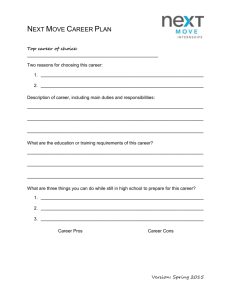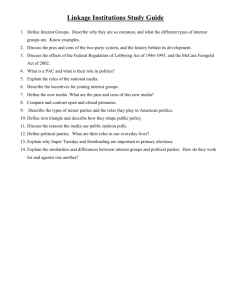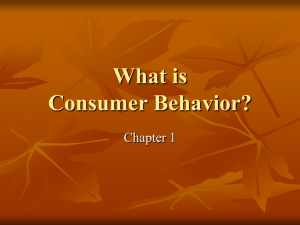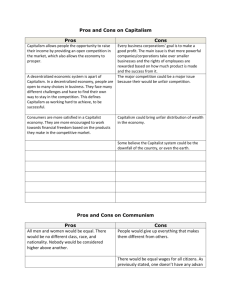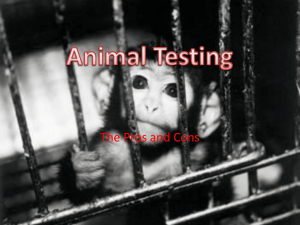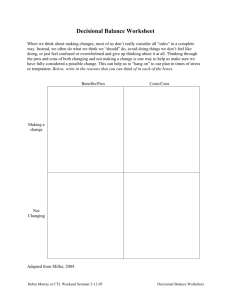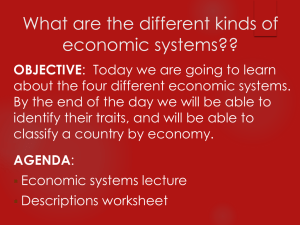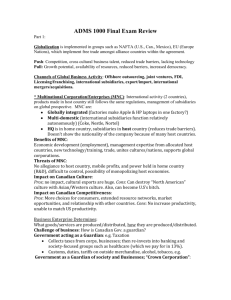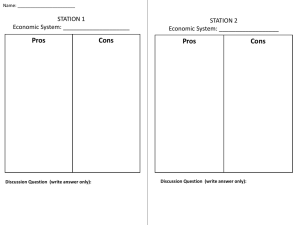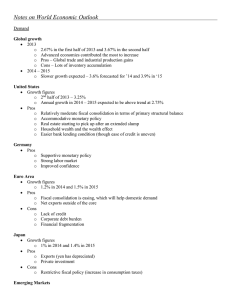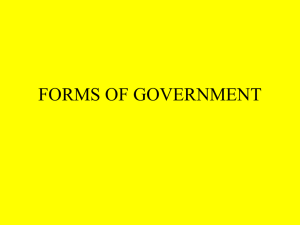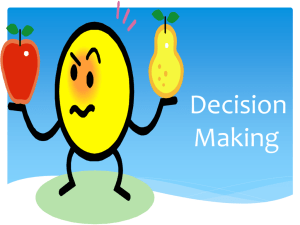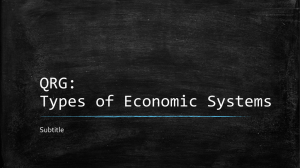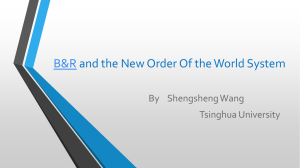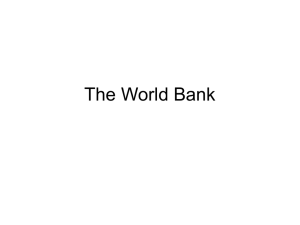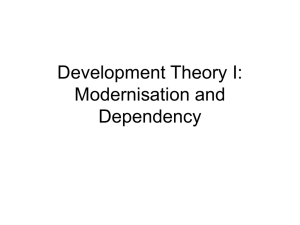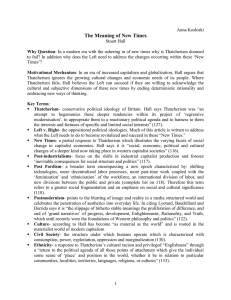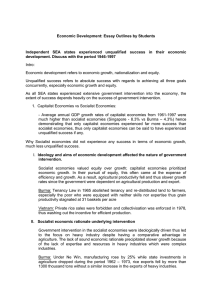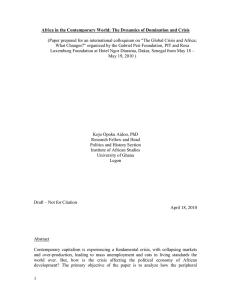Chapter 2 Section 1
advertisement
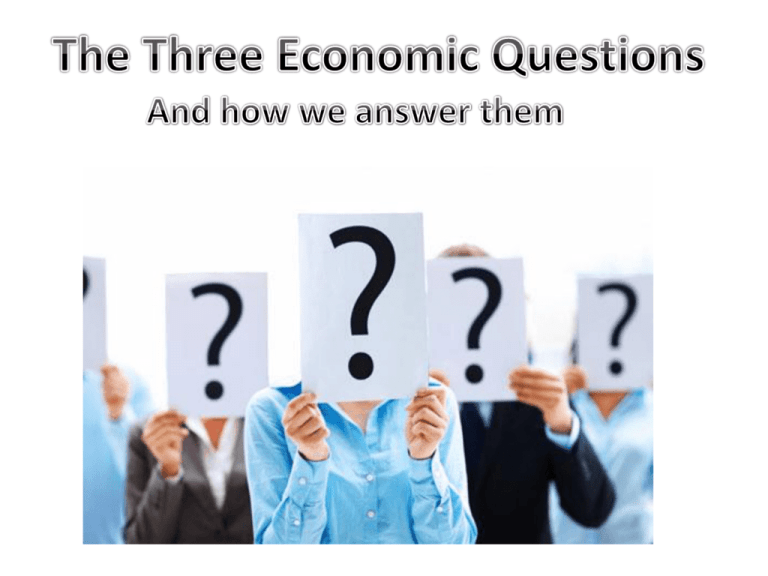
1.What goods and services should be produced? (Cars? Guns? Butter? Shoes? Corn? Rice? Bridges? Bikes? Houses? Computers?) 2. How should these goods and services be produced? (by hand? By machine? Inefficiently? Efficiently?) 3. Who gets these goods and services? (everyone? No one? A select few? Only those who can afford it?) Standard of living – level of economic prosperity Traditions, rituals, habits and customs answer the economic questions in a traditional economy Little innovation/change; slow to adapt new ideas Examples: Amazon and African tribes, nomadic peoples Economic system in which all three questions are answered by individuals PROS: •extremely efficient; no resources are wasted •individuals are allowed to choose CONS: •Pollution/environmental damage •The rich get rich, the poor get poorer •produces what people want, not what they need Examples? How the Other Half Lives: Studies among the Tenements of New York (1890) Jacob Riis What does this political cartoon suggest about government regulating business? All three economic questions are answered by the government alone PROS: •more fair distribution of wealth •Get a lot done quickly CONS: •low quality products •Little innovation •produces what people need, not what they want Examples: any communist state or dictatorship; North Korea, Cuba, USSR Market/capitalist based system which the government regulates Most modern economies are mixed economies Legally obligated to serve ALL citizens (no matter where they are) at the same price and quality …..not so much Free Market/ Command/ Capitalist Centrally planned Traditional Mixed economy Who controls the factors of production? Who chooses what to produce? Who decides who gets what goods and services?


